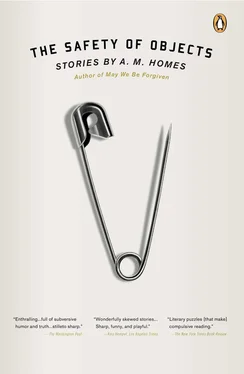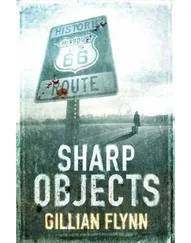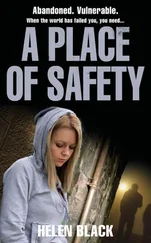Her mother slides the screen door open and calls “Chunky” without looking at her daughter. “Chunky, Chunky, I’m calling you,” her mother says, without noticing Cheryl white and naked, lying like a beached whale. “Chunky.”
Cheryl is trapped in her head. She is aware of herself naked in the yard, naked in the day. She is aware of her name being called.
She imagines her mother will go back in the house and dial 911. She will dial 911 and report that her sixteen-year-old fat daughter is lying naked in the family backyard on a chair from Kmart and fails to respond when her name is called.
“Sweetie,” her mother says, and Cheryl wonders how many calories are in the word sweetie and then she realizes that it’s just a word and it’s fat-free.
“I went to the grocery store, do you want to help me unpack?”
Her mother says, do you want to help me , and she means it. She is perfectly willing to do it alone, but she wants Cheryl to know that if she wants too, if she’d like to do something other than sit naked in the yard, she can come in and help, but she is under no obligation. It is simply an option.
Cheryl likes unpacking. She likes opening things and, before putting them away, tasting just a little bit.
She stands up, peeling herself off the lawn chair with a long sucking sound, and walks toward the house. As she walks, her legs slip past each other with the same whooshing sound that corduroy makes. Her breasts and belly and butt bounce as she walks; they bounce with different beats but all in some strange syncopation, like a strung-out rhythm section.
She steps over the threshold. The contrast between light outside and the darkness inside makes the dark somehow darker and causes temporary blindness. For the first minute all she can see is the front door, straight ahead across the living room. It is open. She can see out into the light. She thinks of walking through the house and out the other side. The darkness seems to take her over, to swallow her. She stands still. There are mirrors on both sides of the living room walls. She sees herself as a large mass of unbelievable whiteness. She sees her shape, the scope of herself and her size. She feels deformed.
In the air-conditioning she can feel herself shrinking, somehow getting smaller all over. She looks away from the mirrors and focuses ahead on the open door. Her mother is just outside bringing in bags from the car. The boy from next door passes by on his skateboard and looks in the door. He sees her and calls out her name, “Chunky.” Cheryl stands there, sees him see her, hears her name, and still stands there. Without realizing it she drops her hand to her crotch, covering herself. Her mother comes in carrying three bags, looks at her, and says, “Get dressed, dear.”
It is Jim’s idea to walk every day to and from the station. He thinks of leaving his new home, walking down the sidewalks, past the neighbors’ homes, over the small bridge to the train station as a pleasant thing to do, the kind of thing he imagines would keep a man alive.
“It gives me time to think,” he tells anyone who asks why he doesn’t just have his wife drop him off at the station like all the other men.
“I enjoy large thoughts,” he says to his wife one evening. “I need them now. My thoughts are my food,” he says. “I have to eat.”
Jim pops a section of a Ho Ho into his mouth; cream filling squirts out onto his lips.
“I understand,” his wife says, refusing to look at him. The sight of food in a person’s mouth makes her ill. “Good night.” She turns off the lamp on her side of the bed.
In the morning as he walks, Jim passes unoccupied cars, motors running, warming up, spilling thick exhaust out onto the sidewalks, into the air. He steers around them fully realizing that avoiding the smoke means nothing, toxicity surrounds him.
He weaves down the sidewalk, briefcase in hand, sweating lightly in his overcoat, feeling young, like a boy, looking forward to school and at the same time drawing out his walk so that inevitably he always arrives at the last minute.
On his way into town, he reviews his thoughts, which frequently come to him in the form of a speech. Each day he either adds or subtracts something so that by the time he reaches the station, he has relieved his mind to the extent that when the train pulls in and he squeezes himself into a seat, holding his briefcase on his lap — the weight and trapped heat lowering what is left of his sperm count — he quickly falls asleep.
Jim is a lawyer, as is everyone in New York City, or so it seems. His office is on the thirty-fourth floor of a large midtown office tower. Every morning his first activity after being greeted by his secretary — who bounds toward him, messages in hand, with all the good cheer of a well-bred retriever — is to close his door and call home.
“I’m here,” he says, as soon as either his wife or the housekeeper picks up the phone.
“Good,” the voice on the other end is trained to say. “Great,” Jim says. “Gotta go.”
Occasionally when he calls, there is no answer, and Jim gets nervous. His palms sweat, and he finds it difficult to breathe. He sits paralyzed at his desk and pushes the redial button every two minutes until finally someone picks up. It is all he can do to stop himself from hitting redial every minute, or thirty seconds. This did not happen years ago, before they moved out of town. After all, before, if his wife was not home, she was out there somewhere, perhaps walking just below his office window. Now, if she is not home, she is truly out there, easily miles from home, possibly in another state.
Each evening, well past eight, when all the offices are empty, Jim goes down the hall, leans back in the senior partner’s chair, and looks out over the Manhattan skyline. He relaxes for fifteen or twenty minutes and then on his way out he peeks into the hall, making sure the cleaning lady is at the far end of the floor, unzips his fly, and relieves himself into the large potted plant Patterson keeps by the door.
It is Jim’s rule that except in cases of extreme emergency, he is not permitted to pee between lunch and the end of the day. By eight o’clock he has collected a sufficient quantity of urine. It is his ritual, his salvation.
Since signing on with Flynch, Peabody, and Patterson, Jim’s lost count of how many plants he’s killed. Patterson’s secretary seems to think their death has to do with the lack of light, the poor quality of air in the building, or possibly a high concentration of lead in the drinking water. The associates make jokes about the horrible smell by Patterson’s door. In one the punch line is something about how it’s better to drop dead in your tracks than go dripping off like the old man, who in reality is hardly old.
* * *
“Not interrupting you, am I?” Patterson says as he walks into Jim’s office, laughing, fully aware that there is no such thing as the senior partner interrupting anyone. “You’re Flynch-Peabody’s Man of the Year.”
Jim doesn’t know what he’s talking about. He feels like a surprise contestant on a game show.
Patterson’s secretary comes in with a plaque the size of a coffee table. Patterson himself is grinning from ear to ear. A photographer rushes in and snaps a few pictures of Patterson and Jim standing with the plaque between them. Jim’s secretary carries in a large potted plant. Jim blushes deep red and feels his knees turn into rubber bands.
This is a joke, a bad joke, Jim thinks. This is Flynch-Peabody’s way of saying good-bye.
“You should be proud,” Patterson says, shaking Jim’s hand. “Not every man is Man of the Year. I never was. Don’t think I don’t know you’re here every night after everyone leaves. I have my spies.” He winks at Jim and then leaves.
Читать дальше












